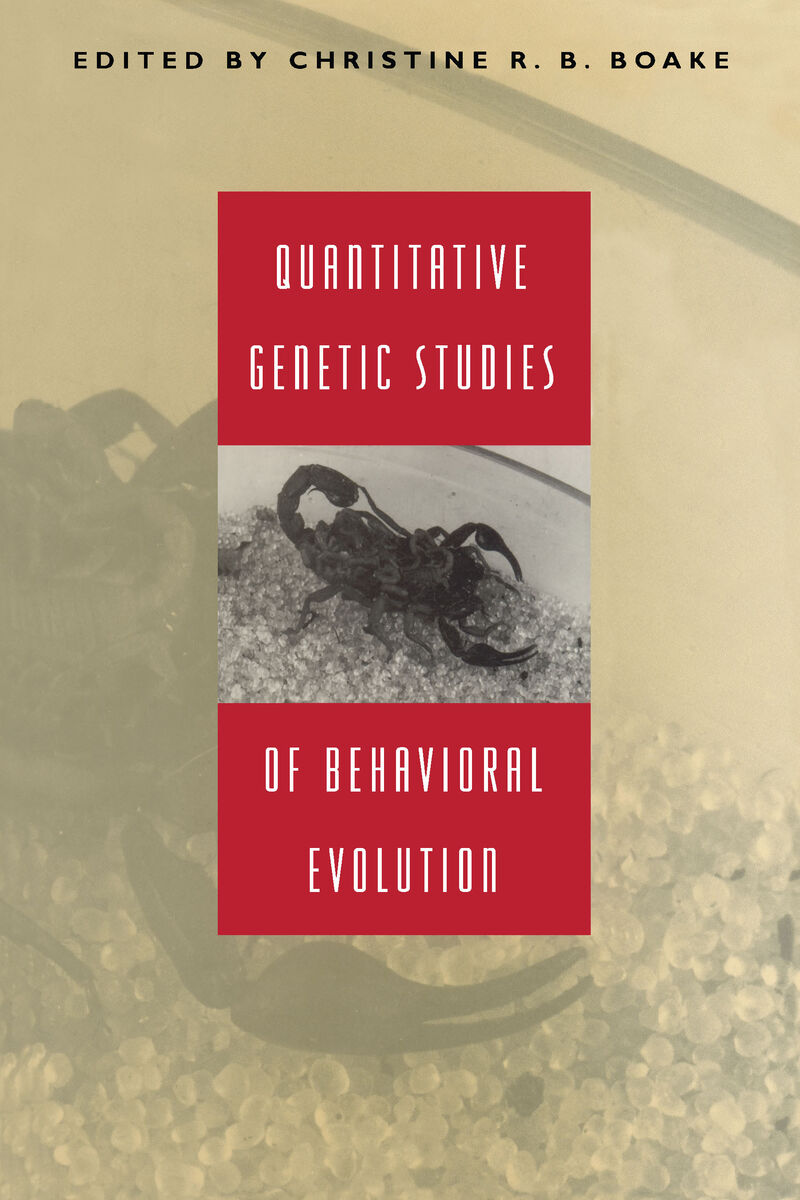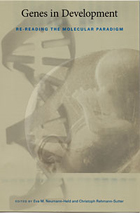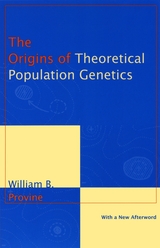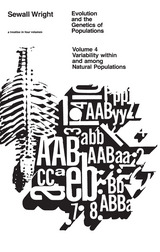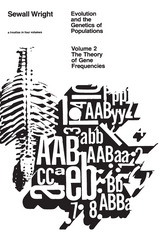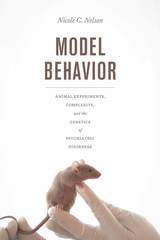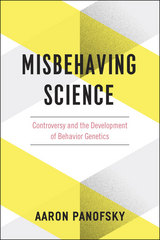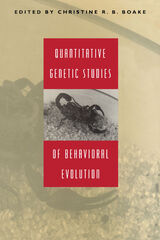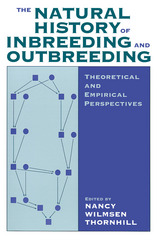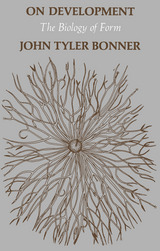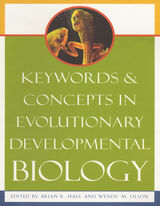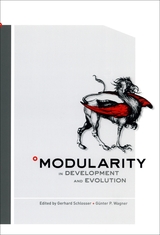Quantitative Genetic Studies of Behavioral Evolution
University of Chicago Press, 1994
Cloth: 978-0-226-06215-0 | Paper: 978-0-226-06216-7
Library of Congress Classification QH457.Q36 1994
Dewey Decimal Classification 591.51
Cloth: 978-0-226-06215-0 | Paper: 978-0-226-06216-7
Library of Congress Classification QH457.Q36 1994
Dewey Decimal Classification 591.51
ABOUT THIS BOOK | TOC | REQUEST ACCESSIBLE FILE
ABOUT THIS BOOK
Quantitative genetics—the statistical study of the inheritance of traits within a population—has become an important tool for studying the evolution of behavior in the last decade. Quantitative Genetic Studies of Behavioral Evolution examines the theory and methods of quantitative genetics and presents case studies that illustrate the many ways in which the methods can be applied.
Christine R. B. Boake brings together current theoretical and empirical studies to show how quantitative genetics can illuminate topics as diverse as sexual selection, migration, sociality, and aggressive behavior. Nearly half of the chapters focus on conceptual issues, ranging from quantitative genetic models to the complementary roles of quantitative genetic and optimality approaches in evolutionary studies. Other chapters illustrate how to use the techniques by providing surveys of research fields, such as the evolution of mating behavior, sexual selection, migration, and size-dependent behavioral variation. The balance of the volume offers case studies of territoriality in fruit flies, cannibalism in flour beetles, mate-attractive traits in crickets, locomotor behavior and physiology in the garter snake, and cold adaptation in the house mouse. Taken together, these studies document both the benefits and pitfalls of quantitative genetics.
This book shows the advanced student and scholar of behavioral evolution and genetics the many powerful uses of quantitative genetics in behavioral research.
Christine R. B. Boake brings together current theoretical and empirical studies to show how quantitative genetics can illuminate topics as diverse as sexual selection, migration, sociality, and aggressive behavior. Nearly half of the chapters focus on conceptual issues, ranging from quantitative genetic models to the complementary roles of quantitative genetic and optimality approaches in evolutionary studies. Other chapters illustrate how to use the techniques by providing surveys of research fields, such as the evolution of mating behavior, sexual selection, migration, and size-dependent behavioral variation. The balance of the volume offers case studies of territoriality in fruit flies, cannibalism in flour beetles, mate-attractive traits in crickets, locomotor behavior and physiology in the garter snake, and cold adaptation in the house mouse. Taken together, these studies document both the benefits and pitfalls of quantitative genetics.
This book shows the advanced student and scholar of behavioral evolution and genetics the many powerful uses of quantitative genetics in behavioral research.
See other books on: Behavior evolution | Behavior genetics | Evolution | Genetics & Genomics | Life Sciences
See other titles from University of Chicago Press
